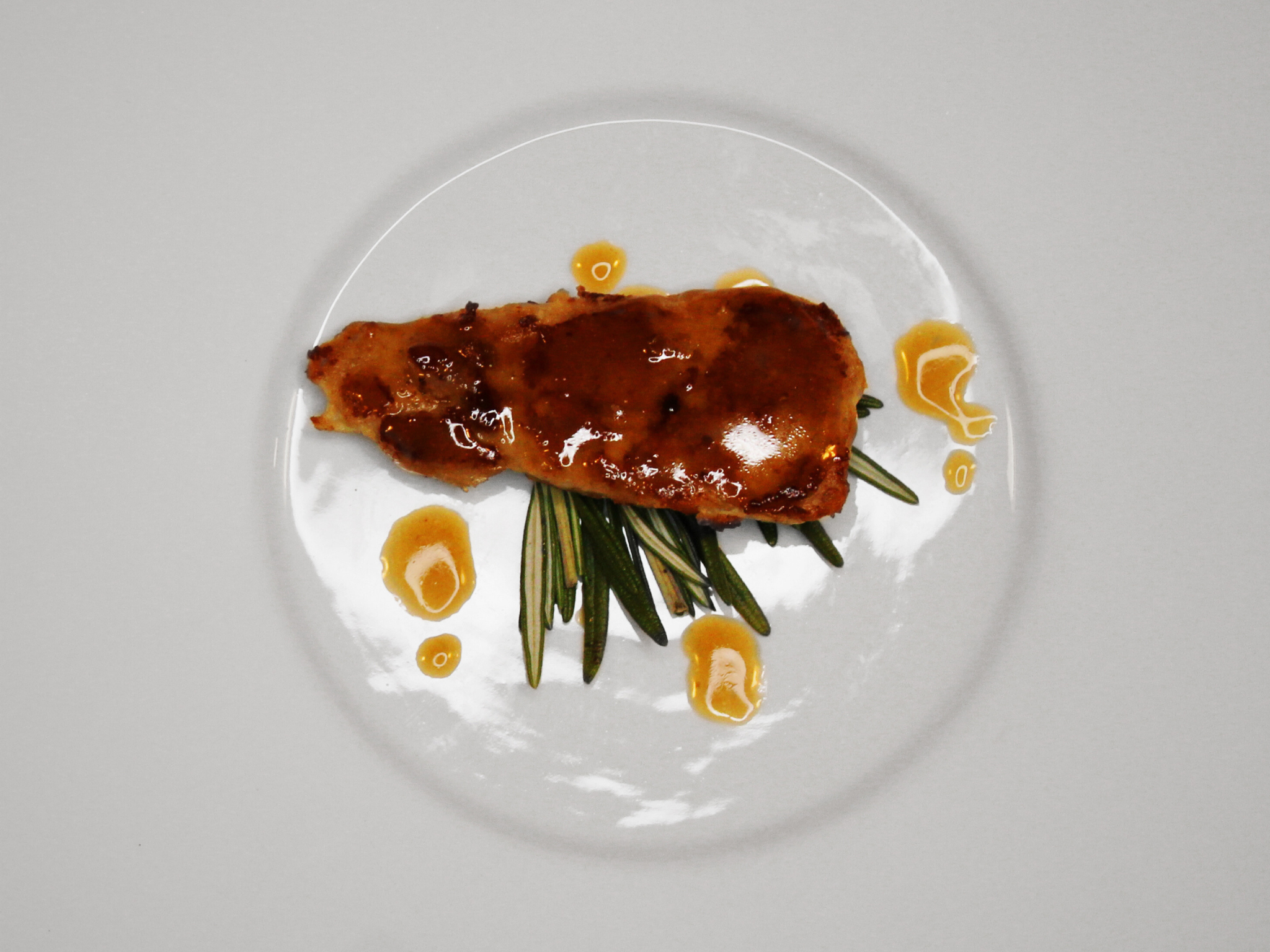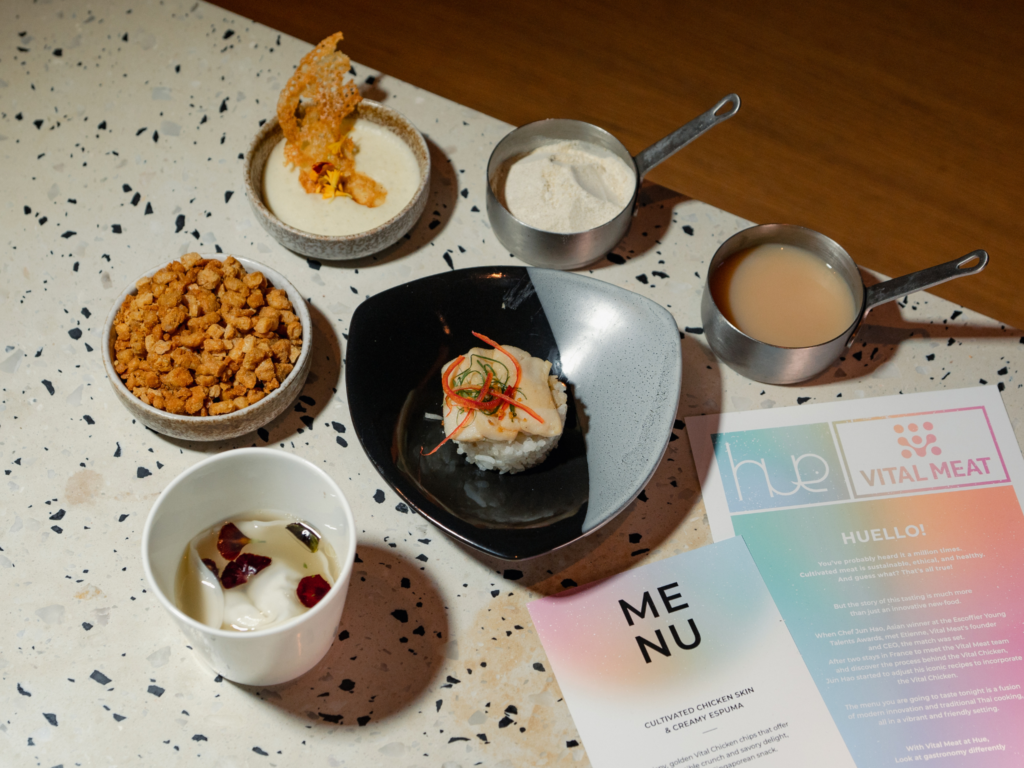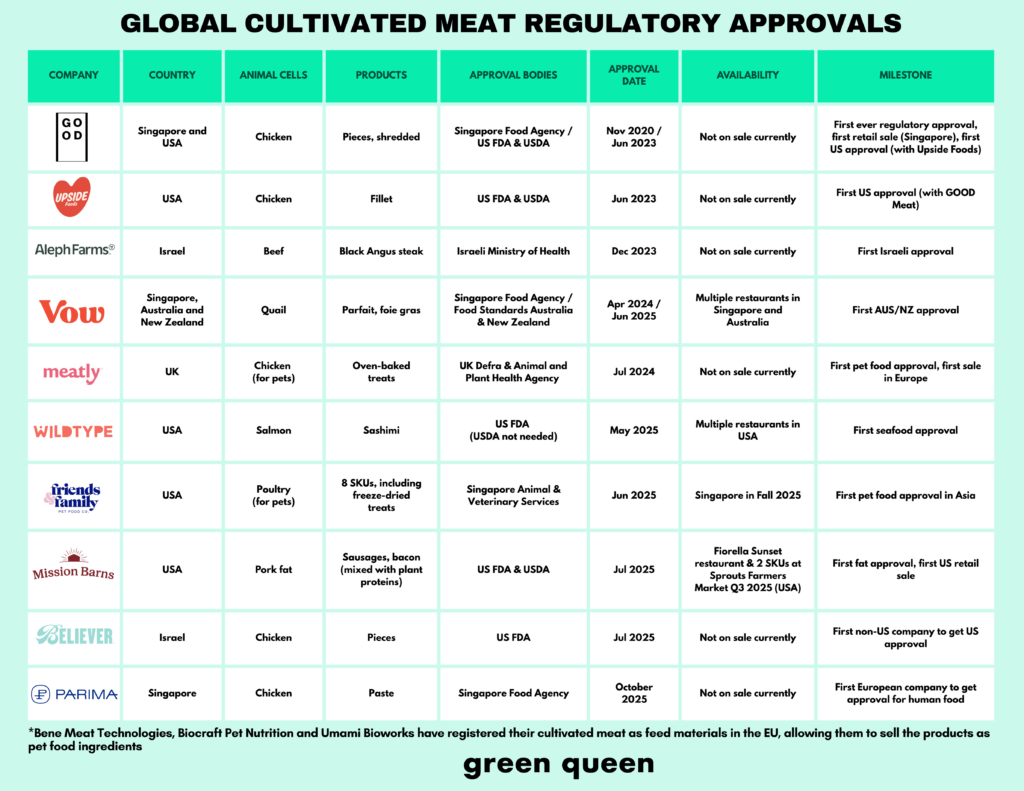
France’s Parima, formed this month after Gourmey’s acquisition of Vital Meat, has received regulatory approval to sell cultivated chicken in Singapore, a first for a European startup.
Parima has become the first European startup to be cleared to sell cultivated meat for human food anywhere in the world, following approval from the Singapore Food Agency (SFA).
The French startup was formed as a result of cultivated meat maker Gourmey’s acquisition of Vital Meat, which developed the cultivated chicken product now greenlit in Singapore.
It marks the Southeast Asian country’s second authorisation for cultivated meat this year, with Friends & Family Pet Food Co getting the nod for its Kampung bird products, and the first for human applications since Vow‘s cultured quail in 2024.
The development also brings an end to a long regulatory saga for Parima in the city-state. “We submitted our chicken regulatory dossier to the SFA at the end of 2023,” Étienne Duthoit, founder of Vital Meat and now part of Parima’s leadership team, tells Green Queen.
Parima did not respond to questions about its launch plans or potential retail distribution in Singapore. That said, the company did host a public tasting for its innovation at Hue restaurant, featuring dishes like cultivated chicken skin chips, handmade chicken ravioli in a chicken broth, and chicken rice.
Parima promises ‘meaningful’ inclusion rate of cultivated meat

Vital Meat uses cell-line technology developed from nearly 25 years of avian cell research at Groupe Grimaud, a global animal genetics leader, turning cells from fertilised chicken eggs into cultivated meat.
It already operated a pilot plant near Nantes, equipped with 2,000-litre bioreactors, but as part of Parima, it’s joined forces with Gourmey’s innovation centre and a pilot facility in central Paris, where it runs multiple 400-litre bioreactors. The combined bioreactor capacity reaches several thousand litres.
Like most companies in the space, Parima is taking the hybrid meat route, combining its cell-cultured protein with plant-based ingredients to form meat products. The firm hasn’t disclosed the exact share of different ingredients, but Duthoit notes it is a strong proponent of “meaningful inclusion rates” of cultivated meat.
“It’s the only way to truly meet consumers’ expectations for authentic taste, texture, and nutrition, and to clearly stand apart from first-generation plant-based options,” he explains. “Our technology also gives us flexibility: we can adjust the proportion of cultivated cells depending on the recipe, always aiming for the highest-quality products.”
Parima isn’t revealing how much the product will cost, though Duthoit promises it has “a clear path toward viable unit economics, not only for premium products, but also for high-volume applications like chicken”.
“Our strategy remains the same: start with premium segments where quality and differentiation matter most, then progressively expand towards broader market access as we scale,” he says.
A breakthrough for Singapore’s delayed approvals

Singapore is widely recognised as a hub for future food tech, thanks to a robust R&D ecosystem, highly skilled workforce, strong government support and investment, and heightened consumer acceptance.
As Parima notes, the SFA’s rigorous science-based regulatory framework for novel foods is recognised as amongst the most advanced globally. And the agency granted the world’s first approval of cultivated meat to Eat Just’s Good Meat division back in 2020.
All this led a host of cultivated meat players to focus their attention on the island nation and file for regulatory clearance, but their success has been sparse. Vow only became the second company to earn the regulator’s green light, three-and-a-half years after Good Meat.
“After being the first country to approve cultivated meat at the time, they really want to make sure that they are not perceived as a country where it is easy to get approvals,” Didier Toubia, co-founder and CEO of Israeli cultivated beef maker Aleph Farms (which is also awaiting the SFA’s go-ahead), told Green Queen last month.
This is why Parima’s approval is a breakthrough. Its team worked closely with the SFA to demonstrate compliance with the regulator’s food safety, quality, and transparency requirements. The extensive and collaborative review eventually confirmed the cultivated chicken as safe for human consumption.
“It validates the safety and robustness of the core foundation of our multi-species platform and strengthens our position to lead the market introduction of high-quality, economically viable cultivated proteins across multiple markets,” says Parima CEO and Gourmey co-founder Nicolas Morin-Forest.
Parima eyes global dominance in cultivated meat’s milestone year

Parima has another application with the SFA, which is reviewing the safety of Gourmey’s cultivated duck. In addition, the startup has seven other active filings across the globe, including the EU, the UK (it is the most advanced in both jurisdictions), Switzerland, the US, Australia and New Zealand, and another undisclosed country.
It has repeatedly signalled its goal to become the first cultivated meat company to be cleared to get the regulatory nod for two animal species. And Morin-Forest has indicated that the first approval for the Gourmey brand could come in Singapore too.
“We’re fuelling close collaborations with regulators worldwide on multiple dossiers, including our cultivated duck,” Duthoit says. “The dialogue continues to advance constructively, and we’re confident the next approvals will follow soon. Each milestone brings cultivated foods closer to consumers, safely, reliably, and at scale.”
Some businesses are hoping to use Singaporean approval as a benchmark for regulatory clearance in other countries, including the UK. Will Parima take that approach too?
“While there’s currently no formal equivalence between Singapore’s framework and other regulatory agencies, this approval sets a strong precedent. It reinforces confidence in the safety and robustness of our technology, which supports all our ongoing submissions,” says Duthoit.

Parima is the latest in a growing list of cultivated meat startups cleared to sell their proteins this year. In addition to Vow and Friends & Family’s approvals, Wildtype and Mission Barns are selling their salmon and pork products in the US, respectively, and Believer Meats has earned FDA approval for cultivated chicken. In the EU, Biocraft Pet Nutrition and Umami Bioworks registered their cultivated meat innovations as feed materials, which can now be sold as pet food ingredients.
Parima suggests that the Singapore clearance provides a launchpad for its broader Asian go-to-market strategy, with culinary partners and major agrifood groups already showing interest in its protein portfolio.
“Our strategy has always been global from day one, with eight active dossiers progressing in parallel across major markets,” notes Duthoit. “Singapore’s green light is an important signal for those upcoming approvals.”
The post Parima Earns Singapore Approval for Cultivated Chicken After Vital Meat Merger appeared first on Green Queen.
This post was originally published on Green Queen.